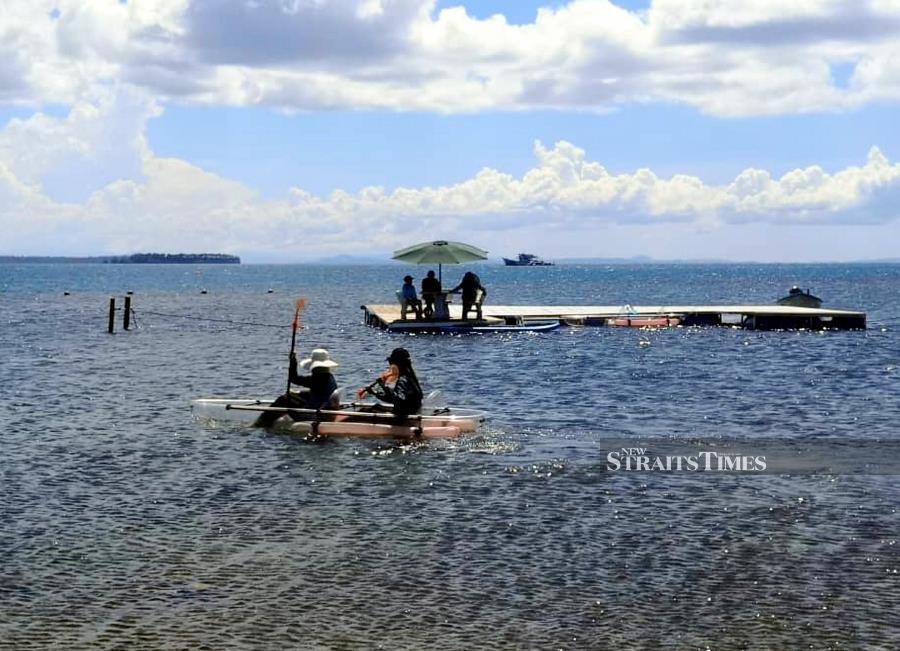- February 5, 2020 @ 3:12pm
 |
| Tourism players in the state capital have started to feel the blow from the mass absence of tourists, especially from China. - NSTP File pic
KOTA KINABALU: Tourism players in the state capital have started to feel the blow from the mass absence of tourists, especially from China.
A sales ticketing officer Muhaimirin Saratal said their sales have dropped by 70 per cent following the state government’s ban against all incoming direct flights from China to the state since Jan 30.
The decision was made to prevent the spread of the novel coronavirus that originated from Wuhan in China.
“Usually between 7am until noon, the ticketing counter hall at Jesselton Point Ferry Terminal here will see a lot of people booking for trips to islands.
“During peak season between February and April, my company will use five boats to ferry passengers every day to the islands but now we hardly use one,” he said, adding that the tour agents are still catering services to locals, Koreans and some Chinese visitors.
Muhaimirin said the situation was reminiscent of the Lahad Datu intrusion in 2013 during which people were not keen to have vacations in Sabah.
When asked whether tour companies would lower their rates to lure more local tourists, Muhaimirin said the move did not seem to be feasible at the moment.
“If we do so, we might not be able to cover our expenses. Some the companies are even considering to temporarily halt their operations until the situation improves.”
At a shopping mall here, a cultural dance performer Cassandra Clepros also noticed that even during weekends, only a few would visit to watch her troupe’s show.
“Before the suspension of flights from China and the virus outbreak, our section was usually crowded.
“There would be tour buses stopping at the front mall for their tourists to see our dances. But now, only the locals and Korean tourists are around,” said Cassandra, who has been part of the mall dance troupe since last year in June.
Meanwhile, checks at one of the renowned seafood restaurants here, however, found its business running as usual.
A worker, who refused to be named, said he was not aware whether the situation would affect their business.
“For us, we still work as usual from noon till night. I am not sure whether we have fewer customers now. The patrons that come to eat seafood here are like before. It is still a busy business for us, especially at night.”
|
Comments
Post a Comment